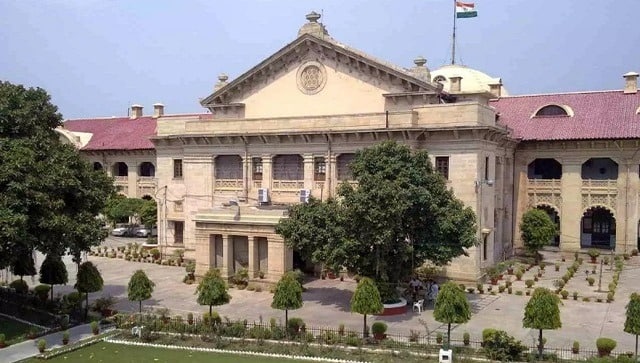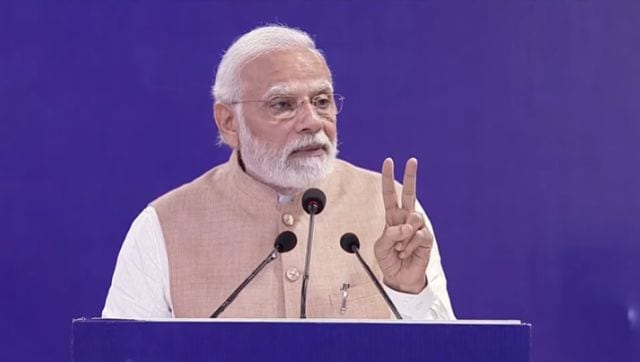It is time to remember some lesser-known aspects of India’s internal emergency that is considered to be the darkest period in independent India’s history. Prime Minister Indira Gandhi had imposed Internal Emergency in India on the night of 25-26 June after she lost a case in Allahabad High Court which declared her election null and void and disqualified her from contesting for six years. Instead of resigning from the post of prime minister, she imposed Emergency, put the Opposition in jail, gagged the press and subverted the Constitution and Parliament to suit her needs. Here are some interesting facts about Emergency that need to be remembered as well as retold to successive generations to help strengthen our democracy as well as expose those who were hell-bent on destroying it and yet they went unpunished: • Much before the actual imposition of Emergency, the Congress leadership had already started mulling over this option. On 8 January, 1975, West Bengal chief minister Siddhartha Shankar Ray, who was a close confidante of Indira Gandhi, had written a letter to her. He had suggested that the government should impose internal emergency and all those opposing her should be arrested. • Justice Jagmohan Lal Sinha of the Allahabad High Court had delivered his verdict on 12 June 1975. The petition regarding electoral malpractices by Indira Gandhi was filed by Raj Narain. Gandhi had defeated Raj Narain in Rai Bareilly parliamentary constituency in 1971 by more than one lakh votes. [caption id=“attachment_10387201” align=“alignnone” width=“640”]  File image of Allahabad High Court. PTI[/caption] • President Fakhruddin Ahmed signed the order imposing internal emergency on 25 June at 11.45 pm at Rashtrapati Bhavan. Gandhi called a cabinet meeting at 6 am on 26 June to get this order ratified. The cabinet meekly surrendered. • On 26 June 1975, Press Censorship was imposed. The electricity supply to the newspapers in Delhi was cut off on the night of 25 June. Only The Statesman and The Hindustan Times were published the next day but even they didn’t have the news of the imposition of Emergency. The Hindustan Times did carry a small item on the arrest of KR Malkani, editor of Motherland. The normal editions of the newspapers were brought out after a two-day gap on 28 June but censorship ensured that the real stories about Emergency couldn’t come out. • The role played by the media was largely pathetic barring a few exceptions. LK Advani summed it up in his memoirs of Emergency regarding the role played by Press, “They were ready to crawl, when they were asked to bend.” The Indian Express and The Statesman were the only two newspapers that resisted Emergency, the rest just caved in. The Rashtriya Swayamsevak Sangh (RSS) backed publications Panchjanya, Organiser and Motherland were banned. [caption id=“attachment_8637421” align=“alignnone” width=“640”]  File image of BJP leader LK Advani. ANI[/caption] • In fact, Malkani, editor of Motherland and a fierce critic of Indira Gandhi, was the first person to be arrested under Emergency from his Delhi residence at around 2.30 am on 26 June. Motherland, however, was able to bring out a special supplement by the 26 June afternoon that exposed Indira Gandhi’s move to impose Emergency in detail. This was a historic edition and was in such huge demand that a single copy was sold at Rs 20, a princely sum for a newspaper copy at that time. • The preparations for arrests of political leaders and other social activists had begun on 23 June 1975. On the night of 25-26 June, 676 political leaders were officially ‘arrested’ including Jai Prakash Narayan, Atal Bihari Vajpayee, LK Advani and Morarji Desai. Congress dissenters Chandrashekhar and Mohan Dharia were also arrested. • Indira Gandhi primarily used the Maintenance of Internal Security Act (MISA) to arrest its opponents during Emergency. On 30 June, an ordinance was passed amending MISA. It was no longer necessary to disclose the reasons for arrest to the persons taken into custody making it absolutely draconian. • The troika of Sanjay Gandhi, RK Dhawan and Bansi Lal ran the government during Emergency like a fiefdom subverting every rule in the rule book to serve their personal and political interests. Sanjay Gandhi was formally feted as Indira Gandhi’s political heir in November, 1976 in Guwahati Session. RK Dhawan was additional private secretary of Indira Gandhi and Bansi Lal was Chief Minister of Haryana. While Sanjay died in a plane crash in 1980, both Dhawan and Bansi Lal played an important role in Congress in the post-1980 era also.
***
Also Read **On this day: Indira Gandhi declared Emergency; all you need to know** **Mann Ki Baat: Narendra Modi invokes Indira's Emergency of 1975 to underscore his own devotion for Constitution of India**
***
• With the opposition parties in tatters after their leaders were being prisoned, it was primarily the RSS that led from the front to oppose the Emergency. RSS leaders ran the underground movement throughout the Emergency and became a major headache for Indira Gandhi. This despite the fact that Gandhi had banned RSS on 4 July 1975, and arrested many of its top functionaries including Sarsanghchalak Balasaheb Deoras. Nanaji Deshmukh, an RSS Pracharak was appointed by Jai Prakash Narayan as the secretary of Lok Sangharsh Samiti which was a combined platform to oppose Indira Gandhi’s dictatorial rule. In addition, another RSS stalwart Dattopant Thengadi was also very active in the underground movement. Professor Rajendra Singh, also known as Rajju Bahiyya, who later became the fourth Sarsanghchalak of the RSS, evaded arrest throughout emergency while travelling and coordinating the movement for democracy across the country. • As the domestic press was gagged, it was the foreign media which extensively reported on how RSS played a stellar role in opposing the Emergency. The Economist wrote on 24 January 1976, in an article titled Yes There Is An Underground, “In formal terms, the underground is an alliance of four opposition parties: The Jana Sangh (the RSS’ political wing), the socialist party, the breakaway fraction of the Congress party and the Lok Dal… But the shock troops of the movement come largely from the Jana Sangh and its band affiliate RSS, which claim a combined membership of 10m (of whom 80,000, including 6,000 full-time party workers, are in prison).” • The Economist wrote in another dispatch, “The truth of this operation consists of tens of thousands of cadres who are organised down to the village level into 4-man cells. Most of them are RSS regulars… the other opposition parties which started out as partners in the underground have effectively abandoned the field to the Jana Sangh and the RSS. The function of the RSS cadre network… is mainly to spread the anti-Gandhi word. Once the ground is prepared and political consciousness raised, so the leaders are ready, any spark can set off the revolutionary Prairie fire.” • The Guardian quoted the then Union Home Minister Brahmananda Reddy in an article dated 2 August 1976, titled ‘The Empress Reigns Supreme’_, “_The RSS continues to be active all over India…It has even extended its tentacles to far-off Kerala in the South.” • Prime Minister Narendra Modi who was an RSS Pracharak at time has given a first-person account of the Emergency era in his book Sangharshma Gujarat. He played a crucial role in the underground movement by working closely with leaders like George Fernandes, providing support to the families of those who were arrested under MISA. He also played a key role in the printing and dissemination of banned literature against the government and Emergency in Gujarat, Madhya Pradesh, Rajasthan and Maharashtra. He moved from one place to another in different disguises to avoid arrest. [caption id=“attachment_10827361” align=“alignnone” width=“640”]
 Prime Minister Narendra Modi. Image courtesy
@BJP4India/Twitter[/caption] • Indira Gandhi declared elections to Lok Sabha in January, 1977. The polls were held from 16-20 March, 1977. Congress was routed, Indira Gandhi and Sanjay Gandhi lost their own seats also. The Janata Party government that came to power repealed the Emergency on 21 March, 1977. It also set up the Shah Commission to look into the excesses committed during the Emergency. The Commission gave a three-part report. The Janata government had set up the LP Singh Committee to recommend action against the guilty on the basis of the Commission’s findings. But before the Singh Committee could give its report, the government collapsed, elections were held and Indira Gandhi came back to power. One of the first things she did was to locate all the copies of the Shah Commission report and destroy them. She almost succeeded. But fortunately, a handful of copies were saved. However, ever since then, there has hardly been a discussion on the findings of the Shah Commission. The guilty were never punished. They still remain unpunished despite committing some of the most horrific acts of brutality and torturing lakhs of political prisoners, forcibly sterilising thousands and most importantly trying to murder the democracy itself! The writer, an author and columnist, has written several books. Views expressed are personal. Read all the Latest News , Trending News ,
Cricket News , Bollywood News , India News and Entertainment News here. Follow us on
Facebook,
Twitter and
Instagram.


)

)
)
)
)
)
)
)
)



